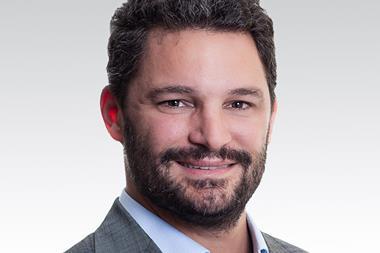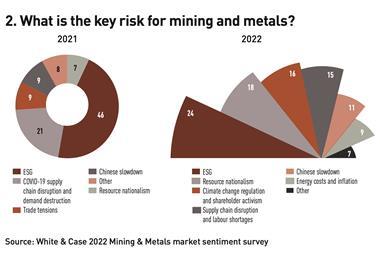With six months until EU pension funds must centrally clear their derivatives contracts, PensionsEurope’s leader said there are worries this may not work in stressed market situations, and there has still been no response to its call for central bank liquidity help in such a crisis.
Pension funds in the EU have been exempted so far from the obligation to centrally clear their derivatives contracts – a duty included in the European Market Infrastructure Regulation (EMIR) put in place following the global financial crisis.
Matti Leppälä, secretary general of lobby group PensionsEurope, told an online event yesterday that his organisation had been discussing what the upcoming end of this exemption on 19 June 2023 would mean for pension funds.
Speaking in a panel discussion on the importance of efficient and integrated financial markets hosted by the Association for Financial Markets in Europe (AFME), Leppälä mentioned the LDI crisis in the UK this September, when margin calls ballooned as UK 30-year government bonds plummeted and more cash was demanded of pension funds.
He said: “When pension funds go into clearing in this present regulatory framework, they need to have cash as collateral if and when these margin calls come – and the question is, is the market able to provide this?”
It was a question of transforming high-quality liquid bonds intraday into cash, said Leppälä at the event held as part of European Retirement Week – a platform organised by 11 European associations for stakeholders to debate the future of pensions in Europe and raise citizens’ awareness of the need to save for retirement.
He said: “That is a concern that we have if there are drastic moves – real stress situations in the market – is this doable and how should they be alleviated?”
This was first and foremost a question regarding Dutch pension funds, he said, as they used derivatives to hedge liabilities, interest-rate and currency risks, and the Netherlands was the biggest country in the EU for funded pensions.
“But it is a big question and it comes down to whether the repo markets are liquid in this situation. And we are not quite certain that that would be the case,” he said.
“Europe is developing clearing, and hopefully that is successful so that the pension funds have good opportunities and good choices with good outcomes”
Matti Leppälä, secretary general of PensionsEurope
Leppälä said PensionsEurope had proposed to the European Commission that as a solution, the central clearing houses could provide central bank liquidity to pension funds in times of stress to convert high-quality government bonds into cash.
“How exactly that could be done and whether there is any appetite by the central banks to do that is uncertain – we have had no positive response,” he said.
“We have said we think central banks could act in this way, and we would rather do this when we don’t have a huge crisis not during or after a crisis,” he said.
Leppälä also said most European pension fund clearing was still being done in London, with regulatory equivalence with the UK continuing until 2025.
“Europe is developing clearing, and hopefully that is successful so that the pension funds have good opportunities and good choices with good outcomes,” he said.
The PensionsEurope chief said liquidity risk management was now becoming more of a focus of both supervisors and regulators.
He told the debate session: “Maybe in the end there will be more emphasis also in legislation and regulation on these issues in risk management and how liquidity risks are managed. I would anticipate this is something that is coming up.”
In October, APG’s head of treasury and trading echoed the PensionsEurope proposal, made in March, saying the Dutch pension asset manager wanted the ECB to act as an emergency liquidity provider on the repo market – something he said the central bank had so far refused to do.
Read the digital edition of IPE’s latest magazine






















